
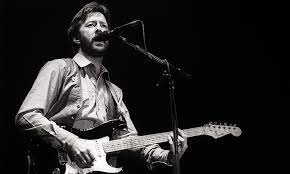
Layla and Other Assorted Racism
As a music aficionado, I can often recall with utter clarity the moment when I heard a particular album for the first time. There was the idyllic camping trip where I stayed up all night with my high school friends listening to the Allman Brothers Eat a Peach or sitting in my mom’s living room as she danced vibrantly to Fleetwood Mac’s Rumors. But perhaps no album is so etched into my consciousness the way Derek and the Dominos’ Layla and Other Assorted Love Songs is. Nothing should be able to penetrate the both literal and metaphoric cloudiness of upstate New York with any radiating brilliance, but I can still close my eyes and remember that trip to pick up a friend at Syracuse Airport when I listened to that album in its entirety for the first time.
A painstakingly beautiful homage to the enduring and unsatiated heartbreak of a love unrequited, Layla and Other Assorted Love Songs features two rock legends that Rolling Stone magazine labeled as the 2nd (Eric Clapton) and 8th (Duane Allman) greatest guitarists of all-time. While we may able to debate that whether those rankings might just need to be reversed, there is no questioning the musical virtuosity of both Clapton and Allman and the delicate sadness they conveyed with each and every heart-wrenching note of that album. It is Clapton’s tearful slide alongside the melancholy piano solo of that song that defines the final scenes of Goodfellas. It is his voice on “Bell Bottom Blues” that lets us know what it means to feel true loss. There is reason that it was common in the 1970’s to see graffiti suggesting that “E.C. is God”. But somehow Clapton’s legacy and career have all been thrown into question after a series of controversial opinions and a revisitation of his checkered past of racism.
It may have faded onto the back burner of musical history over the intervening decades, but make no mistake, Eric Clapton has a history of not just racially insensitive, but downright xenophobic, racist remarks. Most infamously, he went off on an alcohol infused on-stage rant in 1976 that made jaw drops even then, “Stop Britain from becoming a black colony,” he said. “Get the foreigners out. Get the wogs out. Get the coons out. Keep Britain white. I used to be into dope, now I’m into racism. It’s much heavier, man. Fucking wogs, man. Fucking Saudis taking over London. Bastard wogs. Britain is becoming overcrowded, and Enoch will stop it and send them all back. The black wogs and coons and Arabs and fucking Jamaicans and fucking … don’t belong here, we don’t want them here. This is England, this is a white country, we don’t want any black wogs and coons living here. We need to make clear to them they are not welcome. England is for white people, man. We are a white country.” That’s some horrible stuff right there, enough to make you conclude that Clapton is definitely a pretty shitty human.
But while Clapton laughed it off soon afterwards as being nothing more than the liquor talking, and the past several decades seem to have let him get away with it, all of Clapton’s past is suddenly coming back to haunt him as he has once again set about making highly controversial, troubling remarks about COVID vaccine efforts around the globe. In addition to refusing to play venues with vaccine mandates, he has recorded a song with Van Morrison that takes aim at vaccine efforts and used the profits from that recording to bankroll anti-vax propagandists. To be blunt, Clapton is once-again proving to be an often over-indulged rock star who has used his platform recklessly and hurtfully, a plague upon his character and decision-making, but should this, as a recent Rolling Stone article suggested, change the way we see his musical career?
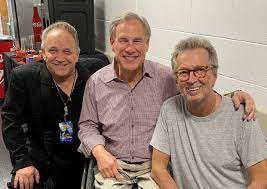
In that article, David Browne suggests, “All of this has left fans grappling with the legacy of a musician who is potentially putting people’s lives at risk.” But therein lies the issue with the overreach of cancel culture: a glaring inability to separate the person from the accomplishment, the artist from the art. And in the end, it is not just the artist but those who do so that really pay the price.
Make no mistake, I am absolutely appalled by Clapton’s blatant racism and bigotry. I am saddened to see a brilliant guitarist come out as an advocate for an anti-intellectual movement that is hampering the vaccination movement that would get the global community up and running again. I think it fair to say that I am not inviting Clapton over for Thanksgiving anytime soon. But what does any of that have to do with the music he has produced? How has his quality and characteristics as a human being altered the art which he has created?
I recently listened to that album once again note for note, and as far as I can tell, not a thing has changed. The sweeping instrumentation, the devout guitar playing, the soulful voice that haunts to the very bone- all of them were still there, just as they always have been. Clapton’s subsequent behavior does not and cannot change any of that. In our rush to make ourselves feel morally superior by rejecting anything and everything even possibly offensive, we have thrown the proverbial baby of inspiration out with the muddied bath water of individual human character and behavior.
We have become a society that holds our idols and entertainers up to impossible standards, placing them upon pedestals just so that we can knock them back down and invalidate everything they have done. In doing so, we not only deprive ourselves of the enjoyment of what they have produced independent of the person they may be, but we also establish a standard for morality that no human being, including ourselves, can achieve. No one is perfect. We have all done and said things we regret. Why would musicians or athletes be any different. Ty Cobb may have been a horrible human being, but he was no less of a baseball player for being so. And it is only when we accept the failings of others that we find a place for accepting them in ourselves.
Steven Craig is the author of the best-selling novel WAITING FOR TODAY, as well as numerous published poems, short stories, and dramatic works. Read his blog TRUTH: In 1000 Words or Less every THURSDAY at www.waitingfortoday.com

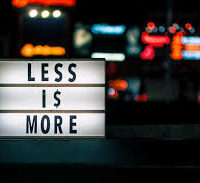

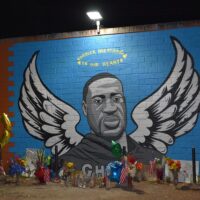
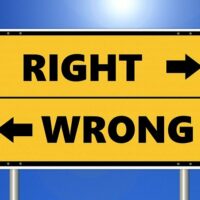
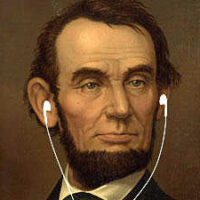
True, but those same artists use their fame as a platform to affect change based on their personal views. When they do, they are the ones who have chosen to muddy the waters. Then I think it is appropriate for the rest of us to also muddy the waters and appreciate or dismiss their art with a mind to their political and other views. If they were not using their fame as a platform I would certainly not seek out the personal views of every artist to see whether I wanted to listen to their music or not.
Lynn, I certainly understand your reticence here, but my point was to separate the artist from the art. I don’t like Clapton’s previous racial remarks orhis current anti-tax position, but that does not change the art he created. I will not listen to the song he created with Van Morrison because of the message of that art, but I don’t need to dismiss the rest of his art which does not include a political or racist message. That’s the line I was trying to create in this column. Thank you so much for taking the time to read and respond. I always love the dialogue.